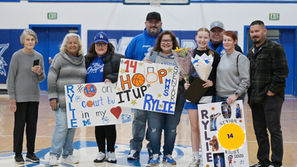Jacob’s kidney: A miracle from prison
- Bill Coate
- Jul 20, 2022
- 4 min read
The inmate in the Florida prison died a couple of weeks ago. We don’t know much about him except that he was 50-years-old, and the authorities were keeping the brain-dead man’s body alive by a machine.
It was all part of God’s plan to give another man in California a miracle.
On July 5 of this year, 49-year-old Jacob Scott received a timely phone call from the UCSF medical school. That call came exactly six years after he had started his dialysis treatment on July 5, 2016, to counteract his failing kidneys. Jacob was told by the doctors that they had a kidney for him to replace his own pair of diseased organs. It would come from the body of the deceased prisoner. The organ transplant team told Jacob the kidney was not just a match; it was a perfect match.
Jacob had been in his early 20s when he learned that he had polycystic kidney disease (PKD). It was an inherited condition for which there was no known cure except kidney transplant. Among the more common symptoms were enlargement of the kidneys, abdominal discomfort, fatigue and high blood pressure. Treatment included blood pressure medication, diet, and moderate exercise. Cysts would form on his kidneys making them look like bunches of grapes. In time, they could grow to the size of footballs. Eventually, they would cause renal failure, requiring dialysis and a transplant. Therefore, Jacob began his dialysis and did everything he could possibly do to be the best candidate for a transplant.
Two days after the July 5th call informing Jacob that a kidney had been found for him, UCSF doctors called him again and asked if he could be at the UCSF medical center at 7 p.m. that evening. Jacob dropped everything and headed for San Francisco.
Once he was checked in, Jacob’s lead physician, Dr. Peter Stock, met with him and said the kidney would arrive the next day (July 8) at 5:30 a.m. They gave Jacob his last dialysis treatment and prepared him for a risky surgery.
The operation took eight hours, but it was touch-and-go all the way. Jacob’s kidneys were found to be so large that it was thought at first the operation couldn’t be done safely, and they almost aborted the surgery.
Dr. Stock, however, decided to move ahead. They took one kidney out and Jacob’s blood pressure dropped. Fortunately, the anesthesiologist who just happened to be filling in was an expert in stabilizing low blood pressure during operations. Once his blood pressure stabilized, the doctors took the second kidney out, then another crisis emerged.
The new kidney had traveled 25 hours to get to the hospital. This was hard on the organ to be out of the body for so long. The tests in Florida had showed an excellent performing organ, but now tests at UCSF showed a spike in creatinine. Dr. Stock had to make another call: whether to put the new kidney in or leave Jacob without any kidneys at all.
Because he had responded so well to surgery so far and because it was a perfect match, the doctor took a chance and proceeded with the transplant.
Dr. Stock had predicted that the new organ would be a “sleepy kidney,” in other words, a kidney that would not start working for 1-2 weeks. However, when he placed the kidney inside of Jacob, it started working immediately.
Because of the PKD, Jacob’s native kidneys had been extraordinarily large: 18 and 22 pounds. They were so huge, that it was like having two large turkeys inside of him. They were pushing up against his organs, particularly his heart and lungs. Doctors were astounded. Dr. Stock told Jacob that he had defied the odds. The surgery wasn’t just a success — “it was a miracle!”
Indeed, it was a miracle or rather, a string of miracles. For six long years Jacob hoped and prayed for a kidney while he was kept alive by dialysis treatments three times a week. That was a miracle.
Then they found a perfectly matched kidney in a Florida prison. That was a miracle.
Then came the operation. When they got in there, the kidneys were so large, they thought it couldn’t be done safely, and they almost aborted the surgery. The lead doctor, however, decided to proceed. That was a miracle.
Then after taking one kidney out, Jacob’s blood pressure dropped into the danger zone. Lo and behold, the anesthesiologist who just happened to be filling in that day was an expert in dealing with blood pressure crises. She rescued the situation. That was a miracle.
Then the donated kidney began to show signs of distress due to the length of travel time it took to get it to Jacob. It suddenly began to show a spike in creatinine. Once again, the transplant team considered halting the operation, which would have left Jacob without any kidneys at all. However, Dr. Stock decided to go ahead, and when he placed the kidney inside of Jacob, it started working immediately. That was a miracle.
So Jacob’s miracle was many-faceted. In a message to the Tribune after the operation, he wrote: “I want to thank the Lord our God and the whole UCSF team for helping me receive the gift of life. I’m grateful too for all the thoughts and prayers from family and friends. Without them I would not have had a second chance at life.”
As Jacob gives thanks to God, he has been reminded of some words of truth from the Bible:
“By His wounds you have been healed” (1 Peter); “He heals all your diseases” (Psalm 103); and “By his wounds we are healed” (Isaiah 43).


























Comments